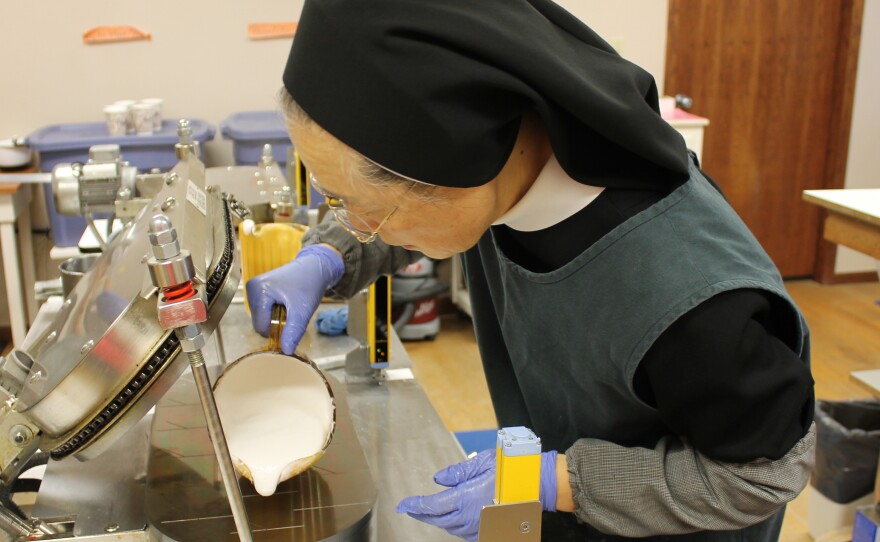Gluten has become verboten in some circles, but there is no way around it for Catholics receiving Holy Communion; a recent church directive emphatically states that the wafer known as the host must contain gluten.
The reminder comes at "the request of Pope Francis" in the form of a letter to bishops worldwide.
At one time, it was religious communities that were charged with making the wafer for celebrating the Eucharist, also known as Holy Communion, said Cardinal Robert Sarah in the letter. But today the bread can come from less-certain origins, especially online.
A Google search reveals several "gluten-free" wafers for purchase. But according to the church's guidelines, "Hosts that are completely gluten-free are invalid matter for the celebration of the Eucharist." The bread must be "purely of wheat."
For the estimated one percent of the population with celiac disease, eating gluten — a protein found in grains such as wheat — causes intestinal damage.
But the church directive does leave some wiggle room for them.
"Low-gluten hosts (partially gluten-free) are valid matter, provided they contain a sufficient amount of gluten to obtain the confection of bread without the addition of foreign materials and without the use of procedures that would alter the nature of bread."
That is where the Benedictine Sisters of Perpetual Adoration of Clyde, Mo., come in. After a decade of work, they came up with a Vatican-approved wafer, using wheat starch and water. It contains just .001 percent gluten, an amount low enough for most celiac sufferers, General Counselor Sister Ruth Starman told NPR.
They sell about 15,000 breads per week, Starman said, some internationally. And while there are other organizations selling low-gluten wafers, Starman said they are the only religious producers.
"It was a privilege for our community," Starman said of developing wafers for people who had previously been unable to have them.
"We believe Communion is the actual body of Christ and that's the center point of our liturgy as Catholics — being able to receive Jesus," Starman said.
Copyright 2017 NPR. To see more, visit http://www.npr.org/.






